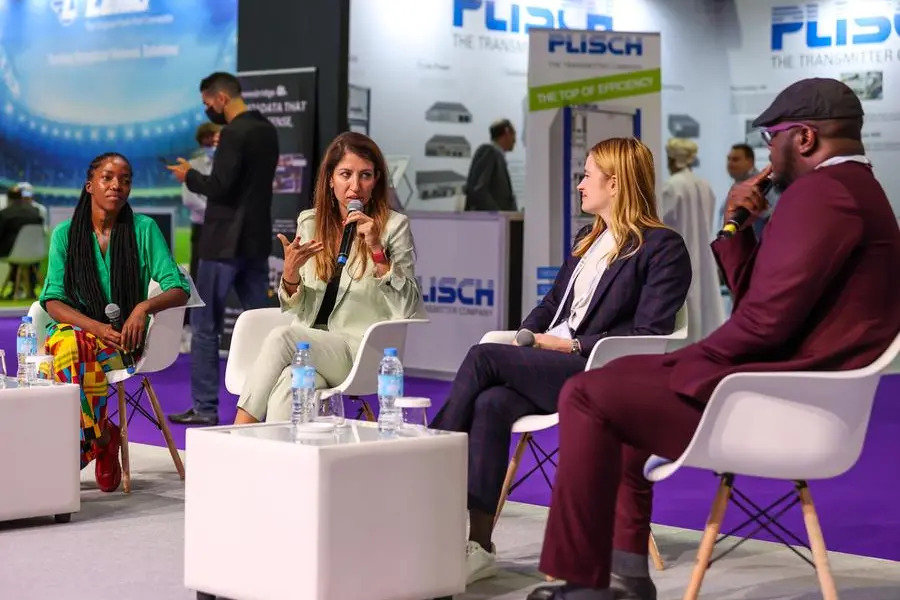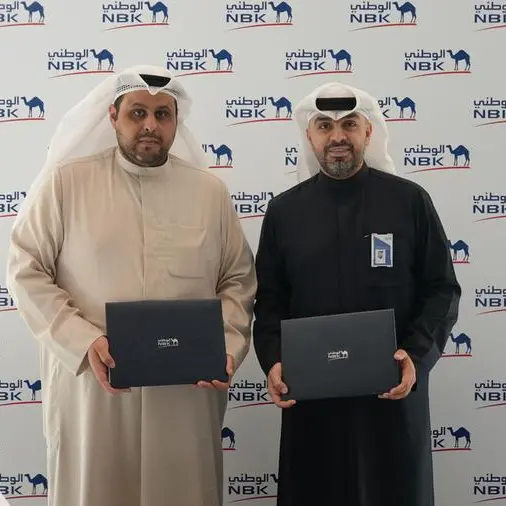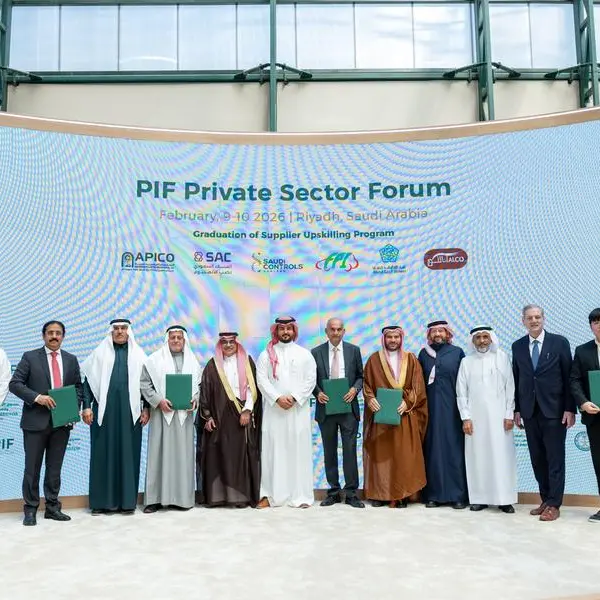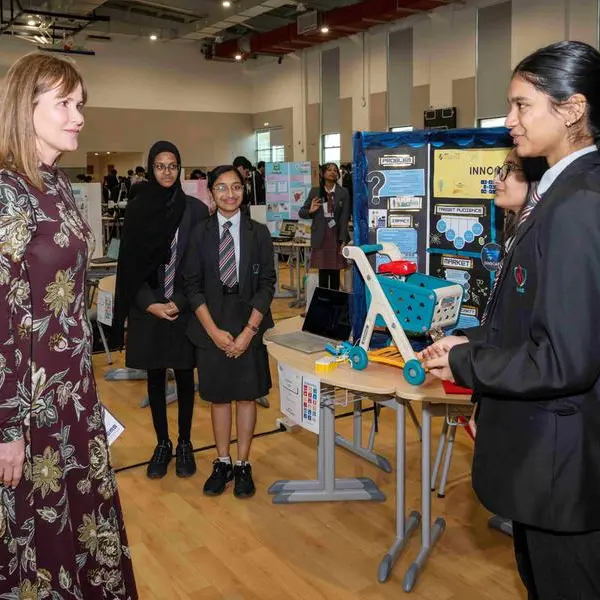PHOTO
- Media credibility a barrier for regional news outlets to make the jump to subscription-based models
- Creating hit originals for children is challenging but hugely rewarding, say local experts
Dubai, United Arab Emirates: The second day of CABSAT, the Middle East and Africa’s most important event for the satellite, broadcast, and filmed content industries, featured insights from some of the world’s biggest names in social media, as well as panel discussions on the role of subscription models in Middle East media and the importance of creating original children’s content.
Social media giants to focus on content creators going forward
During a panel discussion at CABSAT’s Content Congress at Dubai World Trade Centre, Kinda Ibrahim, Twitter’s director of content partnerships for the Middle East and Africa, and Moon Baz, Meta’s creator partnerships lead for the Middle East, Africa, and Turkey, discussed the creator economy boom and the role of social media. Both experts revealed their respective platforms are pivoting to focus more on content creators, an economy recently valued at US$100 billion.
“Millennials are cutting cords: Both Gen Z and Alpha are not mobile first, but rather mobile only,” said Ibrahim. “Not only in terms of consumption, but also creation. With only a mobile phone, they can create very engaging content. It’s more relatable, authentic, and relevant – which translates as more eyeballs and, for brands, is more relatable to potential customers.”
Baz, who noted that video now makes up 50 per cent of users’ time spent on Facebook and 20 per cent of time spent on Instagram, added: “We haven’t focused too much on creators in the past, but this is now where we are focusing. Our investment in Facebook Watch and Reels underlines our commitment to creators and while we already have monetisation tools – ads, subscriptions, paid online events, etc – we are now testing a Reels Bonus Programme in the US as part of a US$1bn investment. It will, in time, be rolled out worldwide.”
Linear TV in news of the future
Elsewhere, some of the region’s leading news creators discussed the challenges of adopting subscription models in the Gulf and how such models impact revenues on linear TV platforms. Riad Hamade, Director of Business News at Asharq Business with Bloomberg, identified credibility as a barrier for news outlets in the region to make the jump behind a paywall.
“Most of us haven’t built up the credibility yet – it will take us time,” he said. “When you look at examples of established western media outlets such as The New York Times, Wall Street Journal, or Bloomberg, they are successful with their subscription packages, but that’s after they have built their credibility – the foundation of journalism and news analysis. As Arab media outlets, we too have to offer something that is so good that makes sure people do not question a subscription-based model.”
Looking at revenues across platforms, Loubna Fawaz, Head of Content- TV and Digital at CNBC Arabia, eyed traditional TV as still capturing the lion’s share. “Our primary stream of income is coming from traditional TV,” she said. “We do understand our audience and we do cater to what their needs are, through that we have built a relationship of trust with our viewers. At the same time, we are trying to diversify how we transmit content to cater to a new audience.”
Hamade added: “Linear TV is still the most visible for us, however we are looking at different revenue streams, including live events, which is another form of getting information out there and our social media platforms. We have to accept that there isn’t just one way to reach people: we cannot just be a TV station, we cannot just be a website. We have invested a lot of money and we want to reach the young, specialist audience.”
Creating original hits for children is both challenging and hugely rewarding, say experts
Experts from leading children’s content studios discussed how certain themes and technologies are seeing continued gains when it comes to content creation, adding that successfully creating an original piece of intellectual property (IP) can mean more flexibility when deciding on how to monetise the characters beyond the screen.
“The children’s content market is pretty underserved,” said Kamel Weiss, General Manager, SpacetoonGo & Director Business Development, SpacetoonTV. “You don’t see a lot of broadcasters focusing on creating that next blockbuster original. At Spacetoon we don’t just broadcast content, we license as well as diversify into gaming, which was a way to bolster revenues and deliver more content to consumers. Originals are the best way to grow a brand and then monetise because of reduced red tape, a result of others not owning the IP.”
Mariam Al Serkal, Head of Majid Kids at Abu Dhabi Media, added: “It took us a while to grasp what makes content stand out. The beauty of children’s content is that it is very flexible and can be dubbed to many languages. We have taken the step of establishing our own in-house studios, which now employ a team of more than 40. This was a great move for us and helps us be nimbler with our original IPs.”
CABSAT 2022, running daily from 11am to 5pm, is taking place in Halls 5-8 at Dubai World Trade Centre between May 17-19.
-Ends-
About Dubai World Trade Centre:
With a vision to make Dubai the world’s leading destination for all major exhibitions, conferences and events, DWTC has evolved from being the regional forerunner of the fast-growing MICE industry into a multi-dimensional business catalyst, focusing on Venues, Events and Real Estate Management. Complementary to the primary service offerings are a range of value-added services from media/advertising, engineering and technical consultation and wedding planning, security services and an award-winning hospitality portfolio.
For more information, please contact CABSAT 2022’s official PR agency, Action Global Communications, via: CABSAT@actionprgroup.com




















